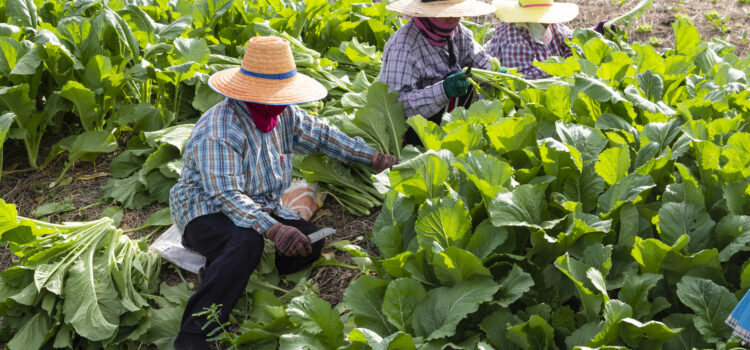
A recent study reports the need for policy reform in order to aid California’s essential farmworkers as data shows that farmworkers have had an increase in anxiety due to the COVID-19 pandemic.
The COVID-19 Farmworker Study (COFS), facilitated by the California Institute for Rural Communities, surveyed 915 California farmworkers and conducted in-depth interviews with 63 California farmworkers as part of phase 2 of the organization’s study and found disproportionate access to healthcare, testing, vaccinations, financial relief, and food.
The data shows that almost 25 percent of farmworkers surveyed were afraid to seek medical services. Fifty-four percent of respondents stated that the possible large costs, the lack of insurance and sick leave prevented them from seeking this healthcare.
“I would be afraid to go to the hospital with my daughters because I could be blamed for neglect if I didn’t take them soon enough,” said a Kern County orchard worker. “Then, they would separate us and deport us.”
Another farmworker from the desert region said he fears becoming asymptomatic and spreading the virus to his friends and family.
“I am afraid of getting sick, but what keeps me up at night is the thought that I am infectious but without symptoms, and it makes me think maybe it’s my fault they closed our workplace, because I infected all of my friends,” said Edurado, a farmworker from the Desert Region. “That’s a big fear that invades my thoughts.”
The COFS calls for engaged conversation to dismantle these inequalities and mobilize the support California farmworkers need. This includes creating outreach and working alongside organizations that serve farmers and advocating on the behalf of farmworkers at all levels of government. In the phase two of the COFS report, policy recommendations include:
1. Expand and simplify access to income and safety net resources and services that move beyond education and overcome barriers for farmworkers, regardless of documentation status.
2. Expand healthcare access and coverage regardless of documentation status.
3. Engage farmworkers and farmworker-serving CBOs to design and implement direct services, workplace safety, education, and outreach that will meet local COVID-19 needs.
4. Expand and simplify access to disaster income and safety net relief for farmworkers, regardless of documentation.
5. Ease the barriers for farmworkers to report COVID-19 related complaints, protect against retaliations, and bolster health and safety enforcement and compliance agencies.
6. Address language barriers by including visual education along with Mexican Indigenous, Asian and non-academic Spanish languages in culturally appropriate literacy levels.”
These policy reformation can be done through the advocacy of the California Division of Occupational Safety and Health, CARES Act, and community based organizations.